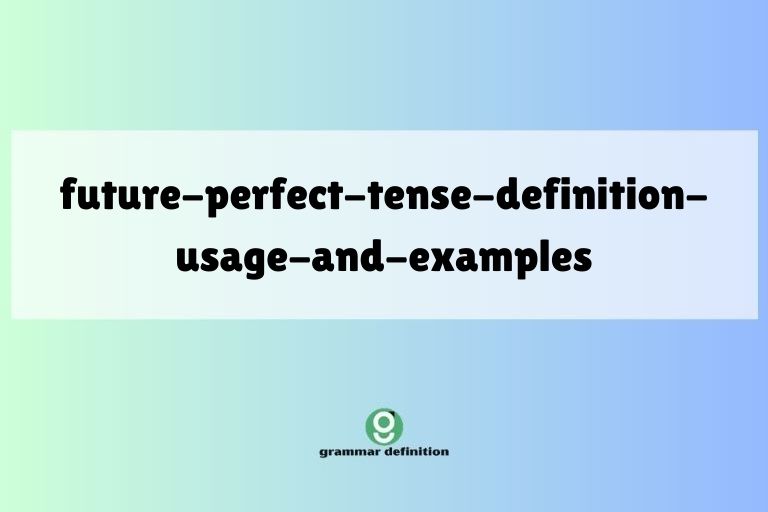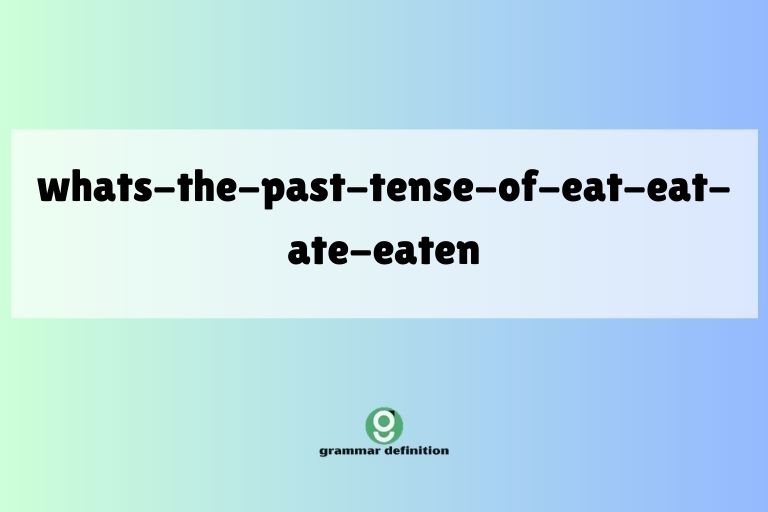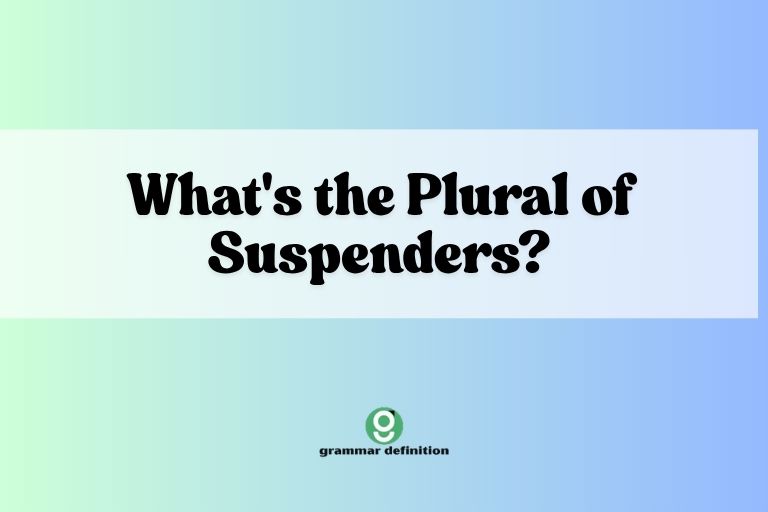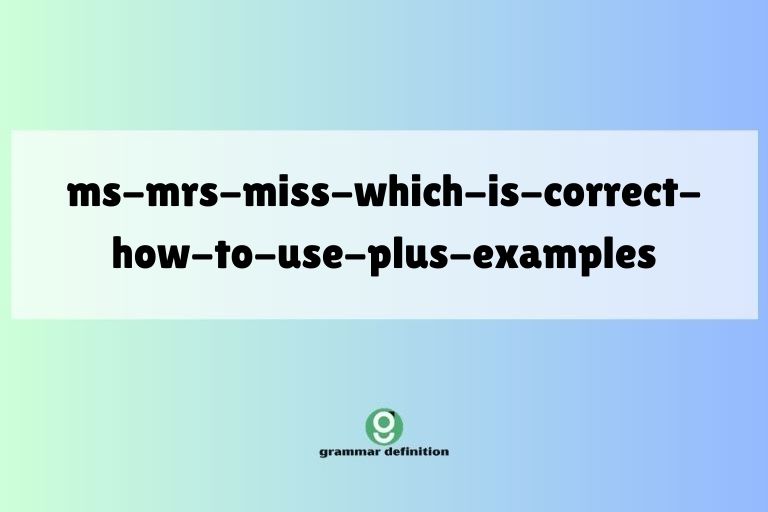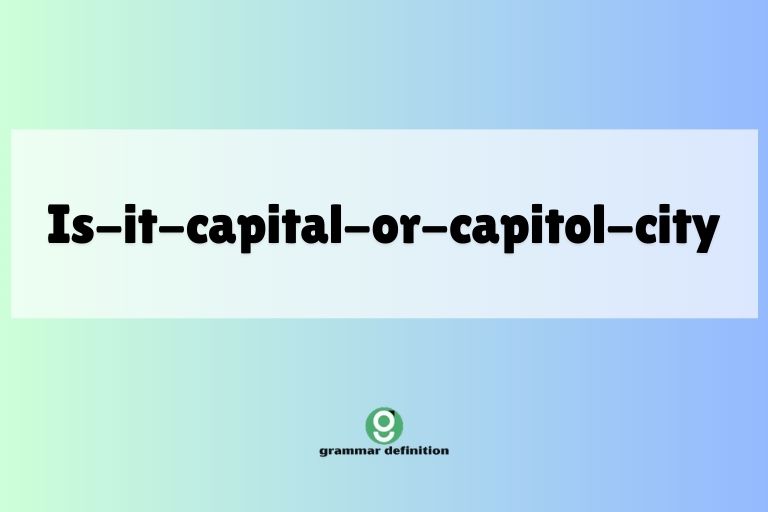Beyond “Best Friend”: Creative Alternatives in English

Having a best friend is a cherished part of life, and in English, we have many colorful ways to express that special bond beyond the simple phrase “best friend.” Expanding your vocabulary to describe your closest confidantes not only adds nuance to your conversations but also enhances your writing. This article explores a rich variety of alternative expressions, explaining their meanings, usage, and the contexts in which they shine.
Whether you’re an English language learner aiming for fluency or a native speaker looking to diversify your vocabulary, this guide will equip you with the perfect words to celebrate your closest friendships.
This article is designed for English learners of all levels, from beginner to advanced. We will cover the definitions, structural elements, and usage rules of various alternatives to “best friend.” By understanding these nuances, you can more accurately and effectively communicate the depth and significance of your closest relationships.
Get ready to discover a world of expressive possibilities beyond the ordinary!
Table of Contents
- Introduction
- Defining “Best Friend” and Its Alternatives
- Structural Breakdown of Alternative Phrases
- Types and Categories of Alternative Expressions
- Examples of Alternative Expressions
- Usage Rules for Alternative Expressions
- Common Mistakes to Avoid
- Practice Exercises
- Advanced Topics
- Frequently Asked Questions
- Conclusion
Defining “Best Friend” and Its Alternatives
A best friend is a person whom one values above other friends. They are often characterized by a deep level of trust, loyalty, and mutual understanding. The term implies a bond that is stronger and more significant than a casual friendship. But what other ways can we describe this important relationship?
Many alternative expressions exist to convey the same sentiment, each with slightly different connotations. Some emphasize shared history, while others highlight the level of intimacy or the nature of the relationship. For example, “childhood friend” emphasizes a long-standing connection, while “confidante” highlights the trust and openness within the friendship. “Partner in crime” suggests a shared sense of mischief and adventure, while “soulmate” implies a deep, spiritual connection.
These alternative expressions can be classified based on the aspect of the friendship they emphasize: duration, intimacy, shared activities, or emotional connection. Understanding these nuances allows you to choose the most appropriate and expressive term for your particular friendship.
Structural Breakdown of Alternative Phrases
Alternative phrases for “best friend” often follow specific structural patterns. These patterns can involve single words, compound nouns, or longer, more descriptive phrases.
Understanding these structures can help you not only recognize different expressions but also create your own.
Single Words: Some single words effectively convey the meaning of “best friend,” such as “confidante,” “soulmate,” or “buddy.” These words often carry a specific connotation related to the nature of the friendship.
Compound Nouns: Compound nouns combine two or more words to create a new meaning. Examples include “childhood friend,” “lifelong companion,” or “partner-in-crime.” These phrases often emphasize a particular aspect of the friendship, such as its duration or shared experiences.
Descriptive Phrases: Longer, more descriptive phrases can provide a more nuanced and detailed portrayal of the friendship. These phrases often involve adjectives and prepositional phrases, such as “my rock,” “my right-hand person,” or “the sister/brother I never had.” These expressions allow for greater creativity and personalization.
Types and Categories of Alternative Expressions
The various alternatives to “best friend” can be categorized based on the specific aspect of the friendship they emphasize. This categorization helps to understand the nuances of each expression and choose the most appropriate one for a given context.
Childhood Friends
These expressions emphasize a long-standing connection that began in childhood. They evoke a sense of shared history and nostalgia.
Examples include: childhood friend, schoolmate, playmate, old friend, lifelong friend.
Close Confidantes
These terms focus on the level of trust, intimacy, and openness within the friendship. They highlight the ability to share secrets and provide emotional support.
Examples include: confidante, bosom buddy, closest friend, my rock, my shoulder to cry on, my sounding board.
Partners in Crime
These expressions suggest a shared sense of mischief, adventure, and camaraderie. They highlight the fun and excitement within the friendship.
Examples include: partner in crime, accomplice, wingman/wingwoman, sidekick, troublemaker buddy.
Soulmates
These terms imply a deep, spiritual connection and understanding between two people. They suggest a bond that goes beyond ordinary friendship.
Examples include: soulmate, kindred spirit, twin flame, other half, my person.
Homies and Buds
These are more informal and casual terms often used among younger people. They convey a sense of ease and familiarity.
Examples include: buddy, pal, mate, homie, bro/sis, bestie.
Examples of Alternative Expressions
To better illustrate the usage of these alternative expressions, let’s examine specific examples in different contexts.
Childhood Friend Examples
The following table provides examples of how to use “childhood friend” and similar expressions in sentences.
| Expression | Example Sentence |
|---|---|
| Childhood friend | Sarah is my childhood friend; we’ve known each other since kindergarten. |
| Schoolmate | I ran into an old schoolmate from high school at the grocery store. |
| Playmate | Emily was my favorite playmate when we were growing up next door to each other. |
| Old friend | It’s always great to catch up with an old friend like you. |
| Lifelong friend | I consider him a lifelong friend; we’ve been through so much together. |
| Childhood friend | My childhood friend, Michael, still remembers the treehouse we built. |
| Schoolmate | Reuniting with my schoolmate after twenty years felt surreal. |
| Playmate | She was my inseparable playmate during those carefree summer days. |
| Old friend | An old friend knows all your stories, both good and bad. |
| Lifelong friend | Having a lifelong friend is like having a constant in a world of change. |
| Childhood friend | Visiting my childhood friend’s house brought back so many memories. |
| Schoolmate | We were schoolmates, but our friendship truly blossomed later in life. |
| Playmate | My playmate and I used to spend hours creating imaginary worlds. |
| Old friend | An old friend is a mirror reflecting your past. |
| Lifelong friend | A lifelong friend is someone who knows you better than you know yourself. |
| Childhood friend | I can always count on my childhood friend to understand where I’m coming from. |
| Schoolmate | My schoolmate reminded me of all the silly things we did in class. |
| Playmate | My playmate taught me the importance of sharing and cooperation. |
| Old friend | Seeing an old friend is like coming home. |
| Lifelong friend | A lifelong friend is a treasure to be cherished. |
| Childhood friend | Even though we live far apart, my childhood friend and I still stay in touch. |
| Schoolmate | My schoolmate and I are planning a reunion trip together. |
| Playmate | My playmate was always up for any adventure. |
| Old friend | An old friend is a reminder of simpler times. |
| Lifelong friend | I’m grateful to have a lifelong friend who has always supported me. |
Close Confidante Examples
The following table provides examples of how to use “confidante” and similar expressions to describe close friends.
| Expression | Example Sentence |
|---|---|
| Confidante | She is my confidante; I tell her everything. |
| Bosom buddy | We’ve been bosom buddies since college. |
| Closest friend | Mark is my closest friend; I trust him implicitly. |
| My rock | During tough times, she’s always been my rock. |
| My shoulder to cry on | He’s always been my shoulder to cry on when I need it. |
| Confidante | As my confidante, she knows all my deepest fears and dreams. |
| Bosom buddy | Travelling with my bosom buddy is always an adventure. |
| Closest friend | My closest friend understands me without me having to say a word. |
| My rock | In times of crisis, she is my rock, providing unwavering support. |
| My shoulder to cry on | Whenever I’m feeling down, he is always my shoulder to cry on. |
| Confidante | Having a confidante is essential for maintaining mental well-being. |
| Bosom buddy | My bosom buddy and I share a love for all things vintage. |
| Closest friend | My closest friend is like family to me. |
| My rock | He has been my rock through thick and thin. |
| My shoulder to cry on | Knowing I have my shoulder to cry on makes life a little easier. |
| Confidante | I value her as my confidante because she always gives honest advice. |
| Bosom buddy | We’re not just friends; we’re bosom buddies for life. |
| Closest friend | She is not just my friend; she is my closest friend and my biggest supporter. |
| My rock | When everything falls apart, she is my rock, helping me rebuild. |
| My shoulder to cry on | He is my shoulder to cry on and the first person I call when I’m upset. |
| Confidante | Sharing secrets with my confidante builds a deeper level of trust. |
| Bosom buddy | My bosom buddy and I have a pact to grow old together. |
| Closest friend | I can always rely on my closest friend to tell me the truth, even when it’s hard to hear. |
| My rock | Through job losses and heartbreaks, she has been my rock. |
| My shoulder to cry on | He offers my shoulder to cry on without judgment, just pure support. |
Partner in Crime Examples
The following table provides examples of how to use “partner in crime” and similar expressions.
| Expression | Example Sentence |
|---|---|
| Partner in crime | She’s my partner in crime; we always get into trouble together. |
| Accomplice | He was my accomplice in the great cookie jar raid. |
| Wingman/Wingwoman | I need a wingman tonight; will you help me out? |
| Sidekick | Every superhero needs a sidekick, and you’re mine. |
| Troublemaker buddy | We were always the troublemaker buddies in school. |
| Partner in crime | With my partner in crime, even mundane tasks become an adventure. |
| Accomplice | She was my accomplice in planning the surprise party. |
| Wingman/Wingwoman | He’s the best wingman a guy could ask for. |
| Sidekick | As my sidekick, you get to share in all the glory. |
| Troublemaker buddy | We were inseparable troublemaker buddies, always plotting our next prank. |
| Partner in crime | Life is more fun with my partner in crime by my side. |
| Accomplice | I needed an accomplice to help me sneak out of the house. |
| Wingman/Wingwoman | She’s my go-to wingwoman for any social event. |
| Sidekick | Being his sidekick means I’m always ready for anything. |
| Troublemaker buddy | Together, we’re the ultimate troublemaker buddies. |
| Partner in crime | Adventures are always better with my partner in crime. |
| Accomplice | I found an accomplice to help me redecorate my apartment. |
| Wingman/Wingwoman | Having a reliable wingman makes navigating social situations easier. |
| Sidekick | As his sidekick, I’m always prepared for spontaneous adventures. |
| Troublemaker buddy | Our reputation as troublemaker buddies precedes us. |
| Partner in crime | She’s not just a friend; she’s my partner in crime for life. |
| Accomplice | He was my willing accomplice in skipping class. |
| Wingman/Wingwoman | She’s my wingwoman, always there to boost my confidence. |
| Sidekick | Being his sidekick is an honor and a thrill. |
| Troublemaker buddy | As troublemaker buddies, we’ve created some unforgettable memories. |
Soulmate Friend Examples
The following table provides examples of how to use “soulmate” and similar expressions.
| Expression | Example Sentence |
|---|---|
| Soulmate | I believe she’s my soulmate, even though we’re just friends. |
| Kindred spirit | We’re kindred spirits; we understand each other perfectly. |
| Twin flame | I feel like we’re twin flames, destined to be in each other’s lives. |
| Other half | He’s my other half, the missing piece I never knew I needed. |
| My person | She’s my person; I can always count on her. |
| Soulmate | Finding a soulmate in a friend is one of life’s greatest blessings. |
| Kindred spirit | We connected instantly; it was like meeting a kindred spirit. |
| Twin flame | Our bond feels like a twin flame, intense and unbreakable. |
| Other half | He’s not just a friend; he’s my other half, completing me in ways I never imagined. |
| My person | In a world of chaos, she is my person, my constant. |
| Soulmate | I didn’t realize a soulmate could come in the form of a friend. |
| Kindred spirit | We share the same passions and values; we’re truly kindred spirits. |
| Twin flame | Our relationship feels like a twin flame, burning bright and strong. |
| Other half | He is my other half, helping me see the world from a different perspective. |
| My person | She is my person, the one I turn to when I need comfort and support. |
| Soulmate | Having a soulmate who understands you deeply is invaluable. |
| Kindred spirit | Our souls recognized each other; we’re kindred spirits on a journey together. |
| Twin flame | Our connection is more than friendship; it’s a twin flame that guides us. |
| Other half | He’s my other half, always pushing me to become a better version of myself. |
| My person | She’s my person, the one who knows me inside and out. |
| Soulmate | I consider her my soulmate because our connection is so profound. |
| Kindred spirit | Finding a kindred spirit made me feel less alone in the world. |
| Twin flame | Our bond is a twin flame, constantly challenging and inspiring us. |
| Other half | He’s my other half, making my life feel complete and balanced. |
| My person | She’s my person, the one I trust with all my secrets and dreams. |
Homies and Buds Examples
The following table provides examples of how to use “homie” and similar expressions.
| Expression | Example Sentence |
|---|---|
| Buddy | Hey buddy, how’s it going? |
| Pal | Thanks for helping me out, pal. |
| Mate | What’s up, mate? Long time no see! |
| Homie | Yo, homie, what are you up to this weekend? |
| Bro/Sis | Thanks, bro, I appreciate it. |
| Buddy | Let’s grab a beer, buddy, and catch up. |
| Pal | You’re a true friend, pal. |
| Mate | Fancy a cuppa, mate? |
| Homie | Homie, you always know how to make me laugh. |
| Bro/Sis | I got your back, sis, always. |
| Buddy | Take it easy, buddy. |
| Pal | You’ve been a great pal to me. |
| Mate | Alright, mate, see you later! |
| Homie | Homie, let’s hit the gym together. |
| Bro/Sis | Love you, bro! |
| Buddy | We’re more than friends; we’re buddies. |
| Pal | Stick with me, pal, and we’ll get through this. |
| Mate | Good on ya, mate! |
| Homie | Homie, let’s cruise around town. |
| Bro/Sis | You’re the best, sis. |
| Buddy | I’m glad to have a buddy like you. |
| Pal | You’re a reliable pal. |
| Mate | Cheers, mate! |
| Homie | Homie, you always keep it real. |
| Bro/Sis | Proud of you, bro. |
Usage Rules for Alternative Expressions
While many of these expressions can be used interchangeably, some have specific usage rules and contexts in which they are more appropriate. Consider the following:
- Formality: Some terms, like “confidante,” are more formal than others, such as “buddy” or “homie.” Choose an expression that matches the formality of the situation.
- Context: Consider the context of your conversation or writing. “Childhood friend” is appropriate when discussing someone you’ve known since childhood, while “partner in crime” is suitable when describing someone with whom you share mischievous adventures.
- Cultural Sensitivity: Be mindful of cultural differences and sensitivities. Some expressions may be more common or acceptable in certain regions or social groups than others.
- Gender: Some terms, such as “wingman/wingwoman” or “bro/sis,” are gender-specific. Use the appropriate term based on the gender of the person you are referring to.
Common Mistakes to Avoid
When using alternative expressions for “best friend,” it’s important to avoid common mistakes that can lead to miscommunication or awkwardness.
| Incorrect | Correct | Explanation |
|---|---|---|
| “She’s my partner in crime, but we never do anything wrong.” | “She’s my partner in crime; we always find ourselves in amusing situations.” | “Partner in crime” implies a shared sense of mischief, so it’s contradictory to say you never do anything wrong. |
| “He’s my soulmate, but we don’t have much in common.” | “He’s my closest friend; we have a deep connection.” | “Soulmate” implies a deep, spiritual connection and shared values, so it’s unusual to say you don’t have much in common. |
| “She’s my confidante, but I don’t trust her completely.” | “She’s a close friend; I trust her with most things.” | “Confidante” implies a high level of trust, so it’s contradictory to say you don’t trust them completely. |
| “He’s my old friend, but we only met last year.” | “He’s a new friend, but we’ve become very close.” | “Old friend” implies a long-standing relationship, which contradicts meeting someone only last year. |
| “She’s my buddy, but I barely know her.” | “She’s an acquaintance, but I hope we can become better friends.” | “Buddy” implies a level of familiarity and closeness that doesn’t exist if you barely know someone. |
Practice Exercises
Test your understanding of alternative expressions for “best friend” with the following exercises.
-
Exercise 1: Fill in the Blanks
Choose the most appropriate expression from the list to complete each sentence:
(childhood friend, confidante, partner in crime, soulmate, buddy)
Question Answer 1. Sarah is my ________; I tell her everything. confidante 2. We’ve been ________ since kindergarten. childhood friend 3. She’s my ________; we always get into trouble together. partner in crime 4. I believe he’s my ________, even though we’re just friends. soulmate 5. Hey ________, how’s it going? buddy 6. Mark is my ________; I trust him implicitly. confidante 7. Emily was my favorite ________ when we were growing up next door to each other. childhood friend 8. With my ________, even mundane tasks become an adventure. partner in crime 9. Finding a ________ in a friend is one of life’s greatest blessings. soulmate 10. Let’s grab a beer, ________, and catch up. buddy -
Exercise 2: Sentence Rewriting
Rewrite each sentence using a different expression for “best friend.”
Question Answer 1. She’s my best friend; I tell her everything. She’s my confidante; I tell her everything. 2. We’ve been best friends since college. We’ve been bosom buddies since college. 3. She’s my best friend; we always get into trouble together. She’s my partner in crime; we always get into trouble together. 4. I believe he’s my best friend, even though we’re just friends. I believe he’s my soulmate, even though we’re just friends. 5. Hey best friend, how’s it going? Hey buddy, how’s it going? 6. Mark is my best friend; I trust him implicitly. Mark is my closest friend; I trust him implicitly. 7. Emily was my favorite best friend when we were growing up next door to each other. Emily was my favorite playmate when we were growing up next door to each other. 8. With my best friend, even mundane tasks become an adventure. With my partner in crime, even mundane tasks become an adventure. 9. Finding a best friend in a friend is one of life’s greatest blessings. Finding a soulmate in a friend is one of life’s greatest blessings. 10. Let’s grab a beer, best friend, and catch up. Let’s grab a beer, buddy, and catch up. -
Exercise 3: Scenario Matching
Match each scenario with the most appropriate expression for “best friend.”
Scenario Answer 1. You need someone to help you plan a prank. Partner in crime 2. You want to describe someone you’ve known since childhood. Childhood friend 3. You need someone to listen to your problems and offer support. Confidante 4. You feel a deep, spiritual connection with someone. Soulmate 5. You want to greet a close friend in a casual way. Buddy 6. You’re looking for someone to accompany you to a party. Wingman/Wingwoman 7. You want to describe someone who has always been there for you. My rock 8. You want to express a strong bond with someone you trust completely. Closest friend 9. You’re reminiscing about the silly things you used to do with a friend. Troublemaker buddy 10. You want to describe someone who feels like a part of you. Other half
Advanced Topics
For advanced learners, exploring the etymology and cultural significance of these alternative expressions can provide a deeper understanding of their nuances. For example, the term “soulmate” has its roots in romantic literature and philosophy, while “homie” originated in specific subcultures and carries distinct social connotations.
Understanding these origins can enhance your ability to use these expressions appropriately and effectively.
Additionally, exploring idiomatic expressions related to friendship, such as “thick as thieves” or “birds of a feather,” can further enrich your vocabulary and improve your fluency. These expressions often convey complex meanings in a concise and memorable way.
Frequently Asked Questions
-
<
p>Are all of these expressions appropriate for all situations?
No, the appropriateness of each expression depends on the context, your relationship with the person, and the level of formality. Be mindful of these factors when choosing an expression.
-
Can I use these expressions in professional settings?
Generally, it’s best to avoid informal expressions like “homie” or “buddy” in professional settings. Stick to more neutral terms like “colleague” or “associate” unless you have a very close and informal relationship with the person.
-
How can I learn more about the origins of these expressions?
You can consult dictionaries, etymological resources, and cultural studies to learn more about the origins and historical usage of these expressions. Online forums and language communities can also provide valuable insights.
-
Are there any regional differences in the usage of these expressions?
Yes, some expressions may be more common or have different connotations in certain regions. For example, “mate” is more common in British English, while “homie” is more common in American English.
-
How can I improve my vocabulary related to friendship and relationships?
Read widely, listen to native speakers, and practice using new expressions in your own conversations and writing. Pay attention to the context in which these expressions are used and ask for feedback from native speakers.
Conclusion
By exploring these alternative expressions for “best friend,” you can add depth, nuance, and personality to your communication. Understanding the different types, usage rules, and common mistakes associated with these expressions will enable you to use them effectively and appropriately.
So go ahead, celebrate your closest friendships with the perfect words!

